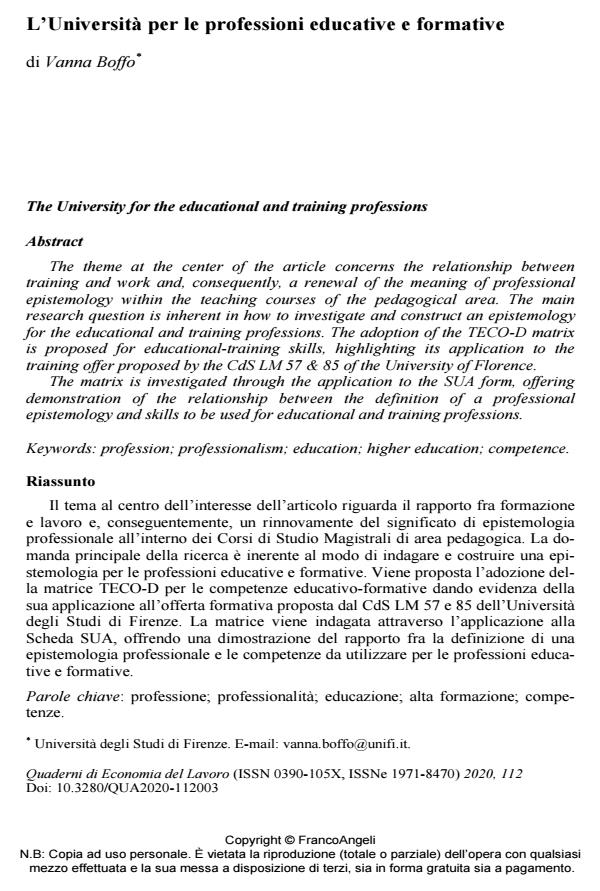The University for the educational and training professions
Journal title QUADERNI DI ECONOMIA DEL LAVORO
Author/s Vanna Boffo
Publishing Year 2021 Issue 2020/112
Language Italian Pages 21 P. 27-47 File size 309 KB
DOI 10.3280/QUA2020-112003
DOI is like a bar code for intellectual property: to have more infomation
click here
Below, you can see the article first page
If you want to buy this article in PDF format, you can do it, following the instructions to buy download credits

FrancoAngeli is member of Publishers International Linking Association, Inc (PILA), a not-for-profit association which run the CrossRef service enabling links to and from online scholarly content.
The theme at the center of the article concerns the relationship between training and work and, consequently, a renewal of the meaning of professional epistemology within the teaching courses of the pedagogical area. The main research question is inherent in how to investigate and construct an epistemology for the educational and training professions. The adoption of the TECO-D matrix is proposed for educational-training skills, highlighting its application to the training offer proposed by the CdS LM 57 & 85 of the University of Florence. The matrix is investigated through the application to the SUA form, offering demonstration of the relationship between the definition of a professional epistemology and skills to be used for educational and training professions.
Keywords: Profession; professionalism; education; higher education; competence.
Vanna Boffo, L’Università per le professioni educative e formative in "QUADERNI DI ECONOMIA DEL LAVORO" 112/2020, pp 27-47, DOI: 10.3280/QUA2020-112003